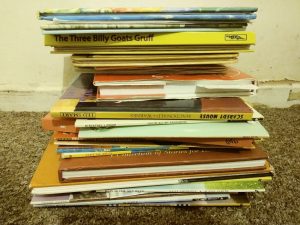
Twenty ways to promote reading habits among children at home or in the neighbourhood. These suggestions are not set in stone, hence, please feel free to add or strike out any one from the list. These are the twenty points:
- Reading isn’t natural; we all have to learn it.
- Reading is pleasurable, so please and please don’t use it as a threat to punish a child.
- Reading readiness comes in different stages, be patient with children.
- A child looking at the pictures in a book and flipping through the pages of the book is already engaging in the reading process; looking at pictures easily introduces children, particularly toddlers and young children to the world of books and the pleasures in reading.
- Take pleasure in buying books for children; books for children will always give you better return on investment.
- Take a book out and read, as often as possible. Let children connect you with reading; it’s always a pleasing experience for everyone involved.
- Read to (your) children regularly. If you’re short of time, read a book into a voice recorder i.e. use your mobile phone to record the reading and let them listen to reading.
- Get audio books and listen to them, especially during those commuting times on the road and busy times in the house.
- Create a library at home. Your library can be as simple as having books in cardboard boxes, on shelves, book cases or even setting aside a whole room as your home’s library.
- Give books as gifts regularly to children – yours, neighbours’, friends’ etc.
- If you’re living on a tight budget, please don’t be discouraged, used bookstores are your friends and they’re usually treasure troves to befriend.
- Talk to children about books
- Take the children in your life to your local library, bookstore or even places within reach that books you have read talked about. For instance, The Drummer Boy by Cyprian Ekwensi started its story on Lagos Island; read the book with children and take them to places like Ajele on Lagos Island for them to know that books do talk about real people and places.
- Give incentives like: chocolates and sweets (not too many), to encourage children to read.
- Explore complex and challenging issues like death, sadness and natural disasters through the reading of very good books with children and discuss the issues raised by the books in very appropriate and familial manners.
- Bring characters, settings and places in books to life by engaging in creative illustrations of them.
- Ask children to tell you about: What they like about the book they’ve just read. What they learnt from it. What they didn’t like about the book.
- Promote reading to children among your friends, families and acquaintances.
- Join or follow individuals or groups who are into reading and children’s books on social media to enjoy collegiate support and feelings on reading to children. But do not share your private life on social media; treat social media as you would treat discussing your private affairs aloud in the middle of market or shopping mall.
- Create a community literacy hub, children’s books exchange programme, book club or reading club and promote reading in your neighbourhood.
Please, leave your thoughts on this post in the comment section and feel free to share the article with your contacts.
Thanks for taking out of your precious time to read my article/s!
If you like this post, kindly subscribe and/or follow me on Twitter @otukogbe and @EdusoundsNg or on Facebook at edusoundsng.
This piece is so educative.
Thank you very much.